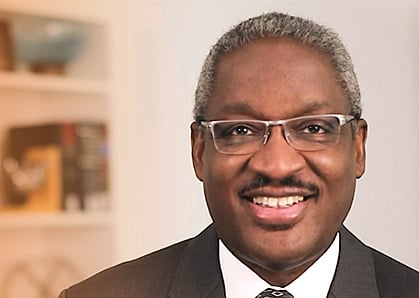Mentors - Threading Fabric of Our Community
People from all parts of the country, and much of the world, come to Miami to take advantage of its natural beauty and economic opportunity. While this diversity is certainly an asset, our city's transient nature can make it difficult for many to build the interpersonal connections and lasting relationships needed to succeed.
Our community's continued prosperity is not only reliant on the business and civic leaders of today, but is also hinged upon the ability to cultivate those equipped to lead in the future. Businesses have an opportunity and an obligation to go beyond a mere revenue generation focus and, through mentorship, direct efforts towards sustaining our community as a whole by developing our human capital.
Mentorship provides a unique avenue to identify strengths that might otherwise go unnoticed, while at the same time, cultivating these individuals to become a critical part of the economic fabric of our community. This rings especially true for our young professionals who are still working to develop their careers and who would benefit from the lessons learned from others who have already done so.
While education is certainly critical, mentoring provides a level of coaching and counseling that lies beyond the reach of formalized training. It teaches the qualitative and subjective parts of our jobs how to deal with frustration, how to give (and take) constructive criticism, how to handle disappointment, how to negotiate in a business setting, etc. and how to impart these skills for the advancement of the individual, organization and society.
As a first-generation attorney, I would not be where I am today without a great number of mentors who have given me a better understanding of the legal profession and an appreciation for my responsibility to uphold the law.
By the time I became a partner at Bilzin Sumberg, I was able to draw from my many mentors and pay it forward through my involvement in organizations such as 100 Black Men of America and the Overtown Youth Center, as well as in Bilzin Sumberg's own mentorship program for young associates and lateral hires.
Through these organizations and many other mentoring opportunities, I have learned that mentoring gives as much value to the mentor as much as it does to the mentee. I have also learned that it is not an easy thing to do. A mentor/mentee relationship is not one that develops from a single meeting or episodic relationship; rather it requires a sustained commitment, candor and dedication.
The more that we embrace mentorship as a necessary duty, the more we can cultivate an emerging leadership that will sustain our respective organizations, carry on and improve our corporate cultures, and enhance the quality of life for future generations in our community.
Albert E. Dotson is a partner at Miami-based Bilzin Sumberg Baena Price & Axelrod and serves as national chairman of 100 Black Men of America.
